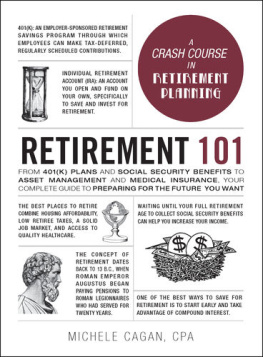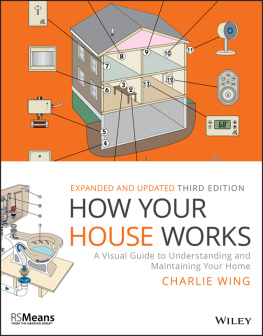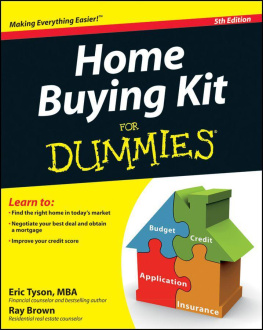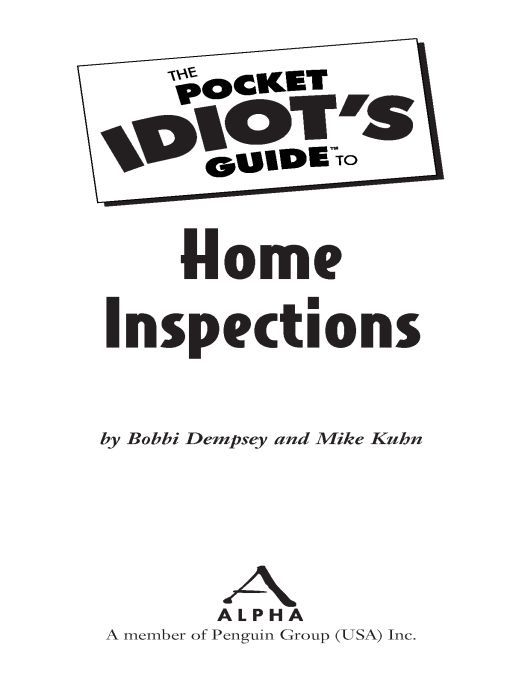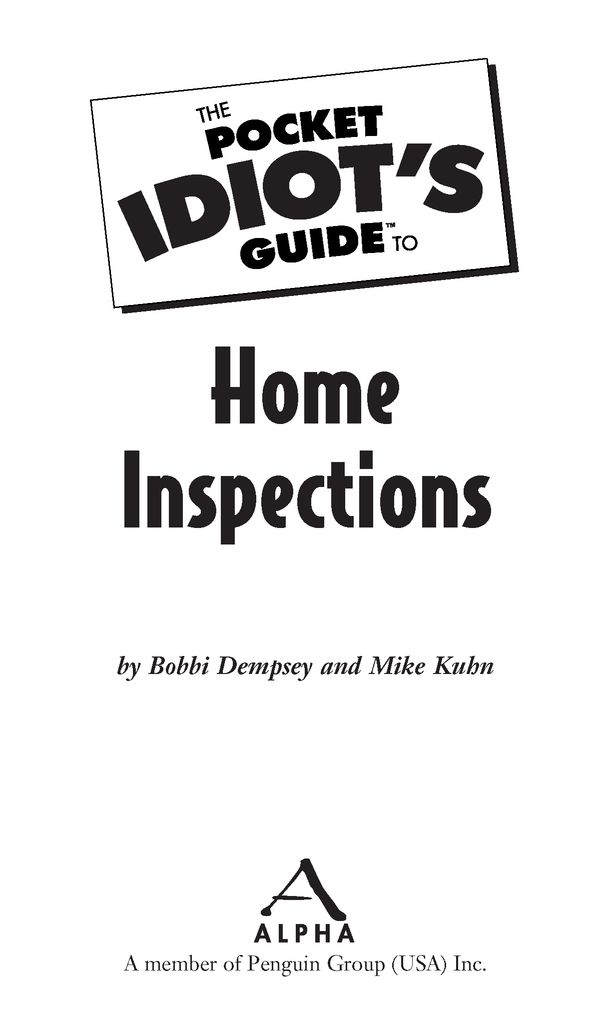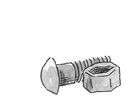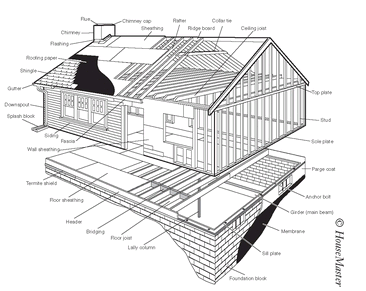Table of Contents
Introduction
Just as people wander around a car lot, occasionally kicking a tire without really knowing why, many homeowners have no idea how to evaluate their home.
To a certain extent, thats okay. After all, youre not supposed to be an expertthats the home inspectors job. But you should have a basic understanding of your homes systems and components. And by brushing up on your home smarts prior to an inspection, youll be better able to ask questions and to understand exactly what the inspector is talking about.
Youll also learn why a home inspector may barely bat an eyelash at that uglyyet purely cosmeticdefect in your home, while he or she becomes deeply concerned over something structural that you never even noticed.
The most important words of wisdom in the book boil down to two main things: the potential problems related to each of your homes systems, and the bottom line of what itll cost you to fix.
Extras
In addition, youll find some extra little tips and tidbits:
Nuts and Bolts
Quick little tips and snippets of info.
House Keys
Definitions of important terms.
Home Alarms
Warnings and important information to be aware of.
Something to Dwell On
Interesting facts and stuff you probably didnt know.
Acknowledgments
Bobbi Dempsey would like to thankfirst and foremosther co-author Mike, because without his tireless advice and guidance, you wouldnt be reading this book right now. And three people she inexcusably neglected to thank in a previous bookher brothers Joe and Bill, and her good friend Lisa Beamer. Also, Alyson OMahoney of Robin Leedy & Associates and Jessica Faust of
BookEnds. And, of course, Jack, John, Nick, and Brandon can never go unmentioned.
From Mike Kuhn: After 17 years as a HouseMaster franchisee, and home inspector, I feel fortunate to be able to share what I have learned with all the future homebuyers and owners alike. However, this would not be possible without the help of my wife, Kathleen, who also shares a passion for this business and now serves as president and CEO of HouseMaster. Also, thanks to Ken Austin, chairman of HouseMaster, who through the years has provided the guidance and opportunity to grow my business into the multiple franchise operation it is today. And, lastly, thanks to the staff at the National Institute of Building Inspectors (NIBI), Joe Cummins, John Hendricks, and Joe Tangradi, who have provided so much technical information and support required to succeed in this business. Thank you to all.
Trademarks
All terms mentioned in this book that are known to be or are suspected of being trademarks or service marks have been appropriately capitalized. Alpha Books and Penguin Group (USA) Inc. cannot attest to the accuracy of this information. Use of a term in this book should not be regarded as affecting the validity of any trademark or service mark.
Chapter 1
Home Inspections 101
In This Chapter
What is a home inspection?
Lots of people need home inspections
How to prepare
Admit it, the last time you went house-hunting, you probably checked out the local school district, investigated property taxes, and perhaps even did some discreet snooping on your potential new neighbors. But did you get down on your hands and knees searching for cracks in the foundation? Haul out the ladder and investigate roof flashings? More than likely, you skipped those messy jobs and were instead busy debating whether the current carpeting would clash with your furniture. Plus, lets face it, when youve already fallen in love with the walk-in closets and the window seat, can you really be objective about any structural problems lurking behind the bay windows in the house youre eyeing up?
And, if youre considering selling a property, youre even less likely to check out your homes nooks and crannies for possible problems. What I dont know wont hurt me, you may think
But what you dont know can hurt yousometimes literally, in the case of serious safety hazards and maintenance problems in the home. It can also be painful financially, because if a buyer feels you have hidden flaws or maintenance problems with their home, they can demand you do the repairs or reimburse them for the cost.
How Do You Know What to Look For?
The average homeowner doesnt know what to look forwhich is why you need a thorough home inspection done by a qualified inspector. The home inspectors job is to examine the overall condition of a home and its systems and components including electrical, plumbing, and mechanical items, such as the furnace and water heater.
The home inspector thoroughly examines all of your homes major parts, paying particular attention to any safety hazards. After identifying any problem areas, the home inspector may recommend further evaluation.
An example of a home schematic.
House Keys
A home inspection is a process by which an inspector visually examines the readily accessible systems and components of a home, and evaluates those components according to established standards.
Further evaluation means examination and analysis by a qualified professional or service technician beyond that provided by the home inspection. For example, if a home inspector suspects a problem with your wiring, he or she will likely recommend further evaluation by a qualified electrician.
A home inspector should not, however, make specific recommendations on how to make repairs or fix things. It would also be unethical for a home inspector to recommend a specific electrician or other specialist.
A home inspection is not the same as a code inspection. Code-enforcement officers work for municipalities, and concentrate strictly on enforcing the local codes. A code-enforcement officer determines how your home and property stacks up against codes and regulations, while a home inspector makes his or her evaluation based on accepted standards of practiceminimum, uniform standards for home inspections, established by organizations such as the National Institute of Building Inspectors (NIBI), American Society of Home Inspectors (ASHI), or industry publications.






